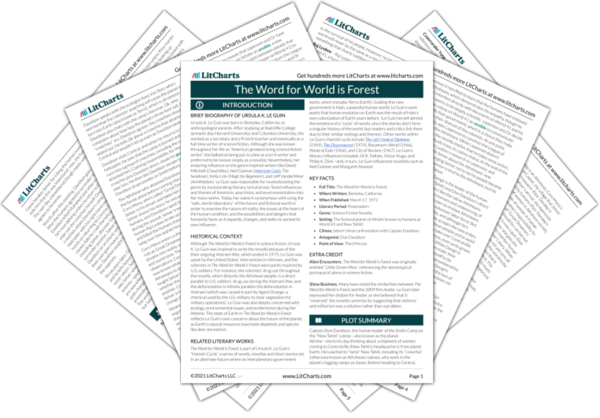Once again, Davidson’s desire for violence is self-defeating, because killing the Athsheans could mean killing Davidson’s own men. (It’s likely that the Athsheans
are taking prisoners, since they did before.) Earlier, Lyubov noted Davidson kills himself when he kills others. Davidson’s desire to bomb the Athsheans proves Lyubov right, since this will only lead to his own destruction. Again, violence is cyclical, and Davidson wants to continue that cycle.
